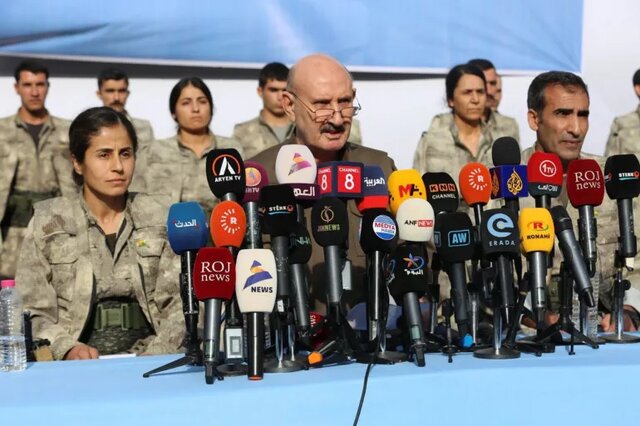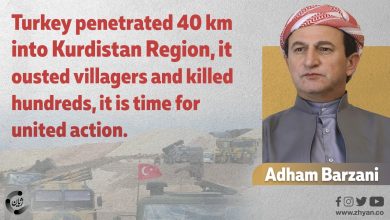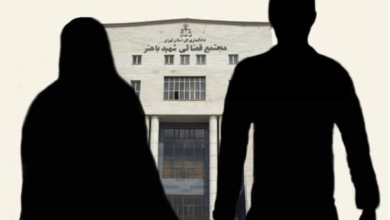The announcement of the withdrawal of PKK forces from Turkish soil, rather than signaling peace, could mark the start of a new phase of instability on the borders of Iran and Iraq. The main question is: will offshoots like PJAK also be disarmed, or is the battlefield merely changing coordinates?
By Dr. Zana Sadeqi
The announcement of the withdrawal of Kurdistan Workers’ Party (PKK) forces from Turkish soil, after more than four decades of conflict, drew the attention of many observers. Some viewed it as the dawn of the end of armed struggle and the beginning of a new era of dialogue and politics. However, the issue is not simple. Although the PKK has announced its intention to cease direct conflict in Turkey and move its forces to northern Iraq, this decision merely shifts the geographical border, not necessarily the military mindset and mechanism that has developed over the years. This is precisely where more critical questions arise: Now that the PKK has reached a relative agreement with Turkey, what will happen to its other branches? Are groups like PJAK and other affiliated movements also expected to disarm? Or is it possible that PKK forces have only withdrawn from one front to be redeployed to others?
The PKK was initially an organization with a specific, national goal within the boundaries of Turkey. However, over time, it developed a transnational and networked ideology, taking root in neighboring countries through multiple branches and groups. One of the most significant of these offshoots is PJAK, the branch that effectively represents the same ideology in the geography of Iran. Now that the PKK has announced its exit, the real question is whether this change signifies the end of the military approach across its entire structure, or simply a redistribution of forces and equipment to branches like PJAK. If the PKK seeks to maintain a peaceful facade towards Turkey while keeping its military force active through other branches, the war will have merely changed geography, not nature.
In such a scenario, Iran’s borders become more vulnerable than ever. Experience has shown that whenever security pressure is reduced in one part of the region, armed groups migrate to other areas to maintain their organizational survival. If the transfer of forces from Turkey to northern Iraq occurs without careful control and oversight, the likelihood of some of these forces joining PJAK or similar groups is extremely high.
Such an event will not only escalate the risk of border clashes but also strengthen the grounds for insecurity and instability in Iran’s Kurdish provinces. Iran’s border regions have faced chronic issues of unemployment, poverty, lack of social services, and limited educational opportunities in recent years. These very gaps provide the perfect breeding ground for armed groups to deceive and recruit youths and adolescents. If the PKK genuinely intends to end the war, it must accept the moral and political responsibility for the actions of its offshoots and guarantee that its forces are truly disarmed and rehabilitated instead of just moving from one front to another.
For years, the PKK has portrayed itself as the defender of “Kurdish freedom,” but a closer look reveals that its field of operation has gradually expanded from Turkey to Iran, Iraq, and Syria, and this expansion has not necessarily benefited the common people. In many areas, Kurds are seen not as beneficiaries of freedom but as victims of these groups’ political and ideological rivalries. While the PKK now sits at the peace table with Turkey, thousands of families in Iran, Iraq, and Syria are still grappling with the consequences of this war: children who were deceived and joined the group’s branches, women who were promised freedom only to be enslaved by labor and ideology in harsh camps, and villages that have been damaged by years of insecurity and the presence of armed forces. If the PKK truly believes in peace, it must also accept the responsibility for this legacy.
Conversely, regional governments cannot afford to be mere spectators. If Turkey has reached an agreement with the PKK, Iran and Iraq are obliged to monitor the repercussions of this deal on their own territories. The withdrawal of forces from Turkey may mean a greater focus on the mountainous areas of northern Iraq and the Iranian borders, where oversight is weaker, and the potential for armed and propaganda activities remains. Should personnel and weapons be transferred to these areas, border clashes will reignite, and the human cost will be paid by local communities, not governments. Meanwhile, pressure on border communities and a security-focused approach toward Iran’s Kurdish regions will intensify—a cycle that ultimately only breeds further anger and distrust.
From a social and human perspective, the more significant concern is that branches like PJAK may attempt wider recruitment to compensate for any reduced support or to fill the vacuum left by the PKK’s exit from Turkey. Experience shows that in the absence of foreign financial or political backing, these groups resort to using social media propaganda to deceive youths and adolescents. Promises of work, freedom, gender equality, or migration to Europe are tools that have been used for recruitment in the past, and their recurrence is highly likely. The result of such a trend is the entrapment of a new generation of children and women in a cycle of violence and despair—a cycle that ends not with peace in Turkey but with the complete dissolution of the armed ideology.
The PKK now stands at a historic juncture. It can genuinely initiate peace, or merely design a new map for the continuation of its influence in a softer form. If it is sincere, it must clearly announce that its offshoots, including PJAK, will also enter the disarmament process and that military activity will cease throughout the entire region. If it fails to do so, the withdrawal from Turkey will lose its symbolic meaning and will be recorded in history only as a tactical repositioning. Ultimately, the future of the Kurdish regions of Iran and Iraq depends on whether the world and regional governments choose to turn this development into a real opportunity to reduce violence or allow the war to merely change its uniform.
True peace begins when people, not armed groups, are at the center of decision-making. If the PKK is truly committed to peace, it must show that it is no longer seeking to build “new branches” for old wars, but is ready to permanently lay down its structures and accept responsibility for the suffering it has caused. Otherwise, the withdrawal from Turkey is nothing more than a change of trenches—not the end of the war.






